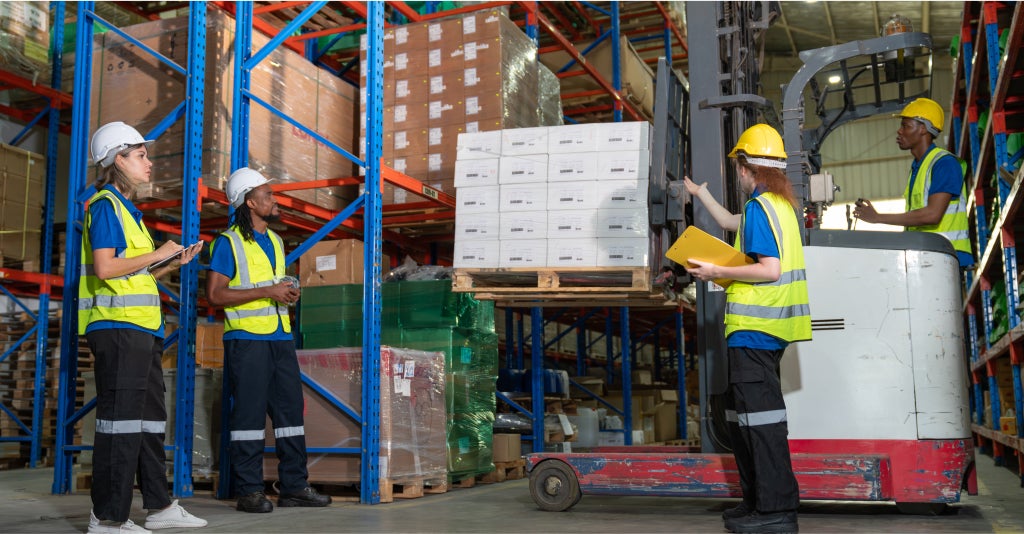AI at BSI: A Century-Old Company Brings AI Models to Production in One-Third of the Time

The recently formed Data Science and AI (DSAI) innovation team at BSI turned to DataRobot to deliver value quickly, helping clients and colleagues across the organization to identify and enable data-driven digital transformation opportunities in a trusted way.
The value of having a single platform that pulls all the components together can’t be underestimated. Then there’s the combination of the technology and the collaborative DataRobot team. If either one of those wasn’t there, I would have looked elsewhere.
Building an Innovation Team
Around the world, more than 75,000 organizations partner with BSI to improve the quality, safety, and integrity of their products, services, and systems. At more than 100 years old, the Royal-Chartered organization publishes around 2,700 industry standards annually in areas including environmental sustainability, digital trust, health and safety, quality management, and the eradication of modern slavery.
When Craig Civil joined the organization as Director of Data Science and Artificial Intelligence, his role was clear: build an AI-focused innovation team that helps BSI accelerate progress and deliver on its purpose. Aptly, he would do so at one of the world’s hubs of thought leadership, the Cambridge University Science Park.
As he created his team, Civil knew their software toolkit was key.
“We needed to transform the way we’re working and the products and services we offer to clients in order to build digital trust, and I knew that data science and AI were core components of that transformation,” Civil said.
Deploying an End-to-End AI Platform with DataRobot
In previous organizations, Civil often juggled multiple systems to get his job done. Data processing, quality checks, graphs and reports, stats and algorithms, and visualization and output each took place in separate applications.
With a budget to resource a new data science team and procure new software tools, Civil applied his experience from previous roles and identified the need for a unifying and transparent ML platform as a critical early requirement. Reaching out to several potential vendors, they contacted DataRobot.
The DataRobot AI Platform is the only open, complete AI lifecycle platform leveraging machine learning with end-to-end capabilities for both Experimentation and Production.
The first draw for me to DataRobot was having a platform that brings together all of the components to create a successful, robust model. From data ingestion to quality checks to automated algorithms, it’s an end-to-end solution.
Finding the Most Impactful Models Fast
From the start, Civil saw the value in the DataRobot Success Package, which gave them guidance from DataRobot data scientists through every step.
“It was as if the DataRobot team was part of my team,” he said. “They filled a temporary technical gap and supported me in succeeding as I recruited into my new team.”
As data scientists joined, they ramped up quickly on the platform via DataRobot University.
Leading a growing data science team, Civil indeed finds having a single platform invaluable in optimizing the effectiveness and efficiency of their work. It brings the full flexibility to integrate with the company’s current ecosystem or use the API in the future. On the front end, DataRobot pulls data directly from Microsoft Azure, saving time and reducing the risk of errors in data transfer. They then view insights in Microsoft Power BI.
When creating models, automation helps them choose the most impactful models faster. Plus, they can quickly see why one model performs better than another and offer documentation on those decisions if a client or BSI colleague asks.
Automation in DataRobot can save huge amounts of time. Not only that, but the platform recommends models that we might not have considered.
Uncovering Insights that Benefit Clients, Auditors, and Patient Safety
In BSI’s Assurance business, clients suggested that the more they know about their standards’ compliance performance relative to others in their industry, the happier they were. To help, BSI created a model to provide a predictive view into the likely outcome of their next audit and how that benchmarks across various indicators.
DataRobot helps us give clients insight into where they could focus scarce resources and prepare for their next audit in a more insightful way, in a trusted partnership with BSI.
Auditors also use those findings to understand where a client is relative to others in the industry and possible areas where the organization could focus resources to better mitigate business risk.
Additionally, the team is creating an ML solution to improve medical device safety. BSI receives reports of incidents related to medical devices from around the world. As data comes in, DataRobot helps make sense of it. If anything looks unusual, the model can trigger an alert to investigate it further.
“Proactively analyzing medical device data has the potential to help reduce failures and improve patient safety down the line,” Civil said.
Extending AI across BSI
Civil credits DataRobot for enabling his DSAI team to deliver trusted model predictions rapidly to internal and external clients.
“Having a single platform that pulls everything together can’t be underestimated,” he said. “Then there’s the combination of the technology and the collaborative DataRobot team. If either one of those wasn’t there, I would have looked elsewhere.”
At BSI, now colleagues across the business are taking notice of the impact of AI, leading them to reach out to the DSAI team.
“People are coming to us with their ideas and opportunities for applications of data science and AI,” Civil said. “With DataRobot, we have a framework to help them and ultimately help build digital trust.”
As BSI applies AI to its modern challenges, this century-old company is proving that age is no barrier to innovation.





